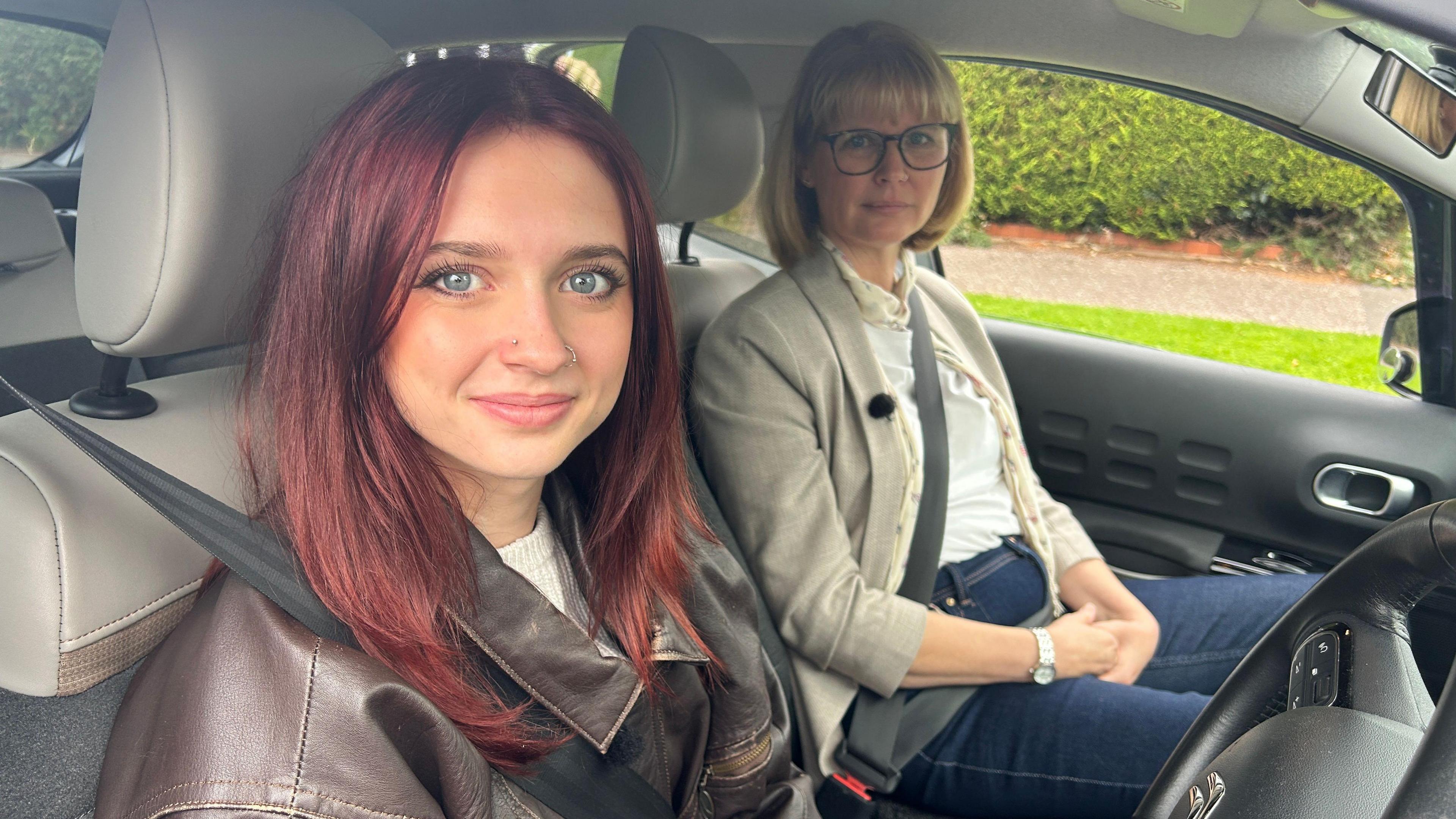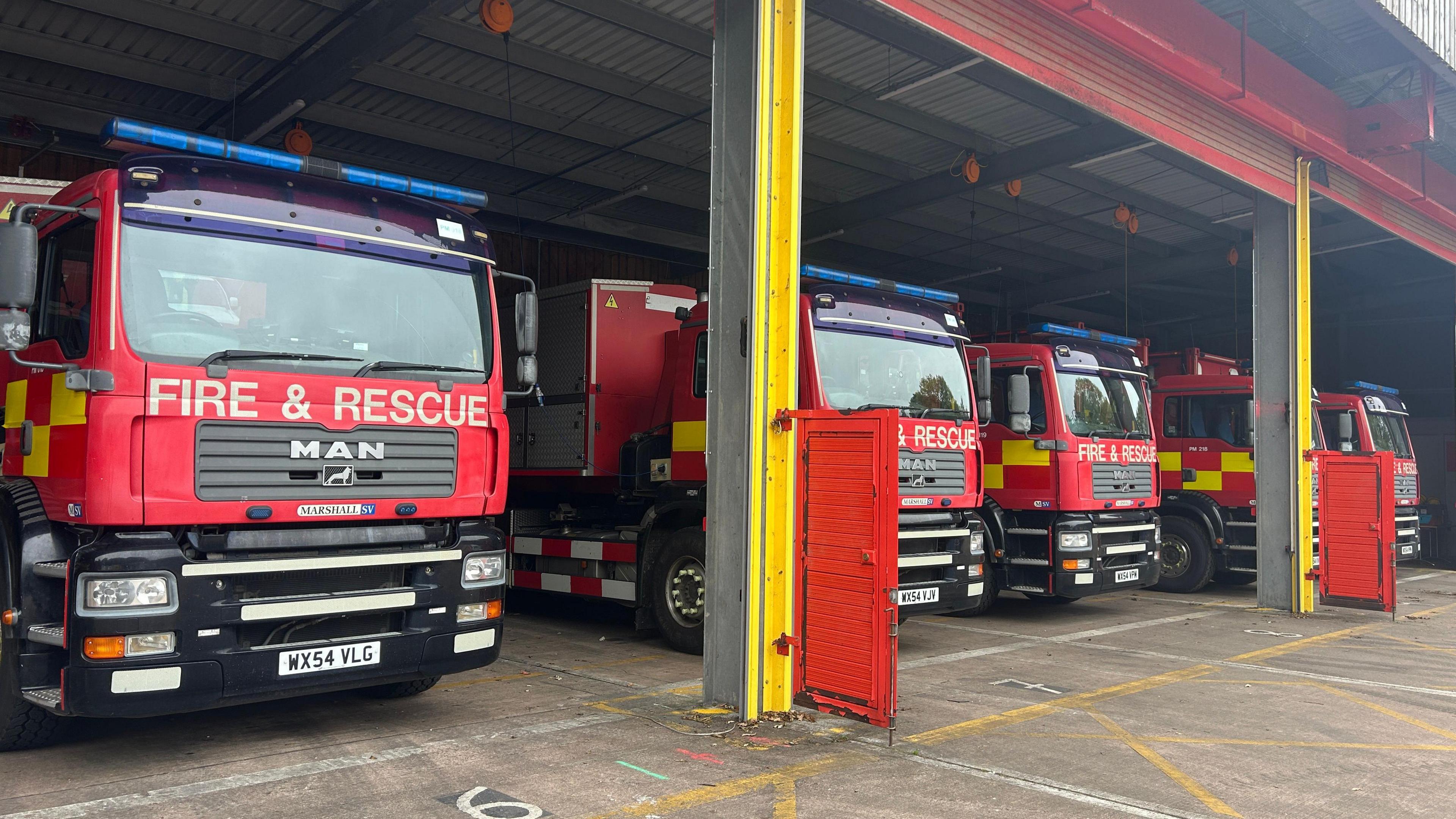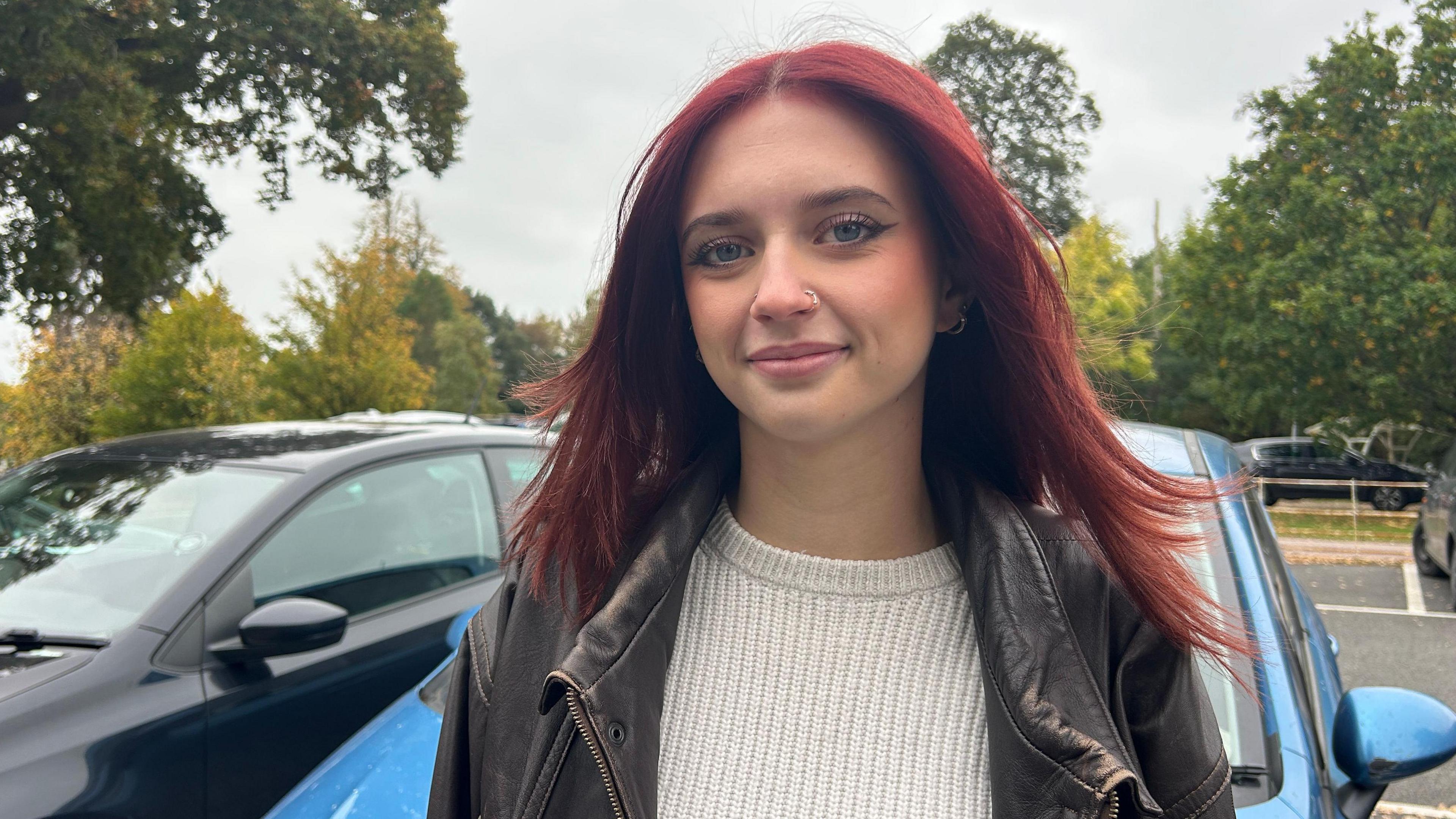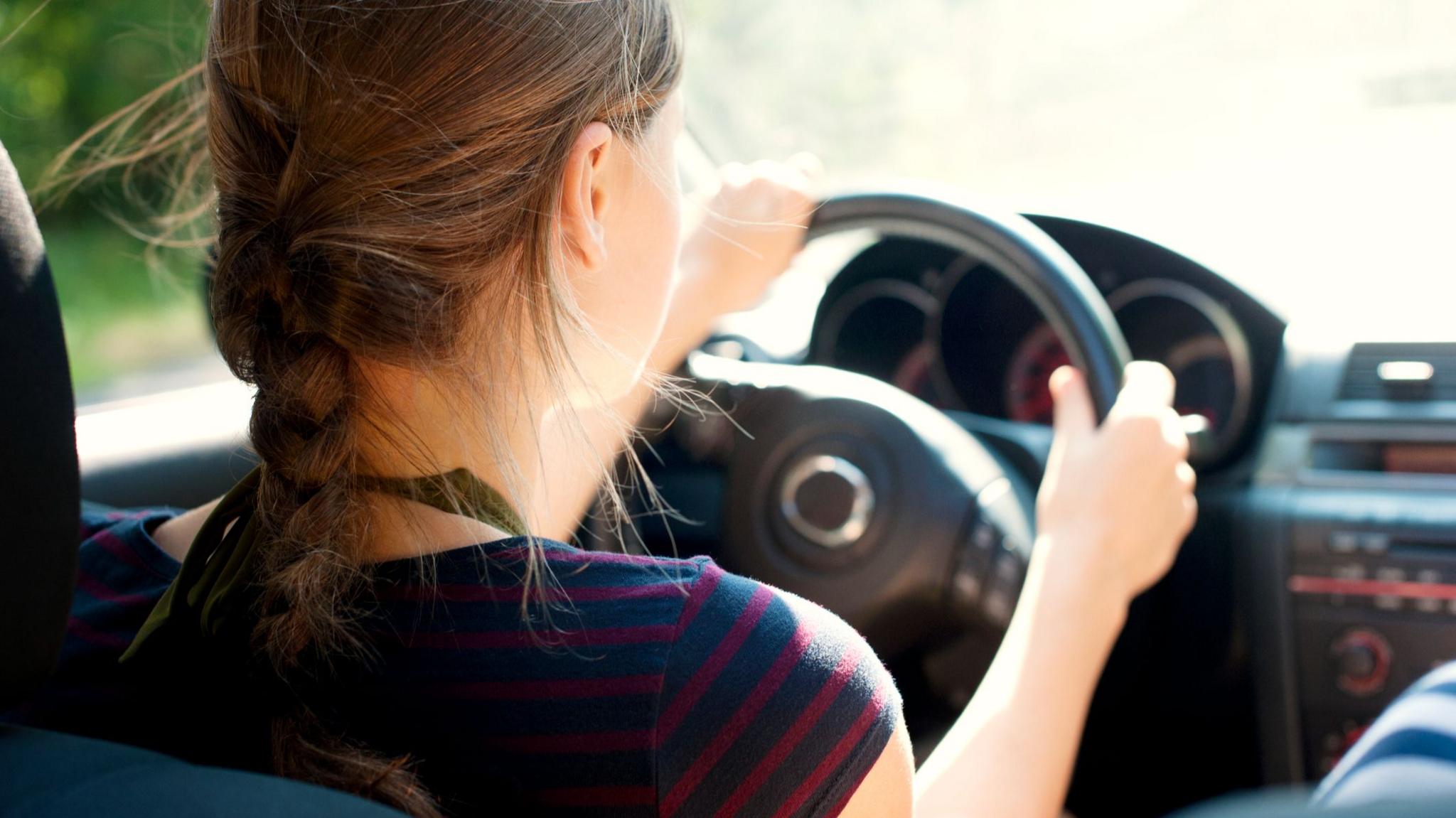Campaign urges young drivers not to drive at night

A campaign has been launched to reduce the number of fatal road traffic collisions among 17-24 year olds
- Published
A campaign has been launched to help reduce the number of fatal road traffic collisions involving 17 to 24 year olds.
Devon and Somerset Fire and Rescue Service's Top 3 campaign highlights the three greatest risks young drivers face - passing driving tests with limited experience, driving late at night, and distractions from peers.
Young male drivers in the age group are four times as likely to be killed or seriously injured, compared with all car drivers aged 25 or over, according to government figures.
Annabelle Priest, road safety lead at Devon and Somerset Fire and Rescue Service, said: "Young people are in the most at risk age category on our roads due to their age and their inexperience."
'Impulsive behaviour'
Ms Priest added: "Experience is something you can overcome and it can be done in a safe way, you can do it with supervision, even after you have passed your test.
"The age factor is a biological thing. Until you are 25, your prefrontal cortex (PFC) is not fully developed. This is the part of your brain which enables you to risk assess what you are doing and plan ahead.
"It makes young people a little bit more inclined to be impulsive, and that's where we see some problems."
The campaign, which is being run in partnership with National Fire Chiefs Council (NFCC), recommends measures such as taking at least six months to learn to drive, which gives young people the time to gain experience in different seasons and weather conditions.
It also recommends avoiding driving between 11pm and 6am, and limiting new drivers to one passenger who is of a similar age for the first three to six months after passing their test.
Government figures from 2024 show that in Devon and Somerset there were 686 young people injured in road traffic collisions, with nine of those fatalities and 123 involving serious injuries.

Government figures show that in Devon and Somerset, there were 686 young people aged 17-24 injured in road traffic collisions
Ella Hancock, 20, from Stokeinteignhead, Devon, said in the past there were times when she had to ask friends she was in a car with to drive more responsibly.
"There's been a couple of incidents when someone has been giving me a lift home after a night out and I have said 'can you please slow down, can you look at the road'."
Ella's mum, Claire Hancock, is an approved driving instructor and said she had instilled safe driving into Ella and her younger brother from an early age.
She said: "I'm not as worried when they are driving, it's when they get in with other friends. Especially with my son who is 18. We have a lot of chats about who he is getting in with."

Ella Hancock, said there were times that she had to ask friends she was in a car with to drive more responsibly
The UK does not have a graduated driving licence (GDL) for new drivers which exists in other countries, such as Australia, New Zealand, Northern Ireland and some US states.
A GDL would mean young drivers could not carry passengers under the age of 25 until they have been driving for six months or turn 20.
A spokesperson from the Department for Transport said: "Every death on our roads is a tragedy and our thoughts are with everyone who has lost a loved one in this way.
"Whilst we are not considering graduated driving licences, we absolutely recognise that young people are disproportionately victims of tragic incidents on our roads and continue to tackle this through our THINK! campaign.
"We are considering other measures to address this problem and protect young drivers, as part of our upcoming strategy for road safety - the first in over a decade."
- Published29 April

